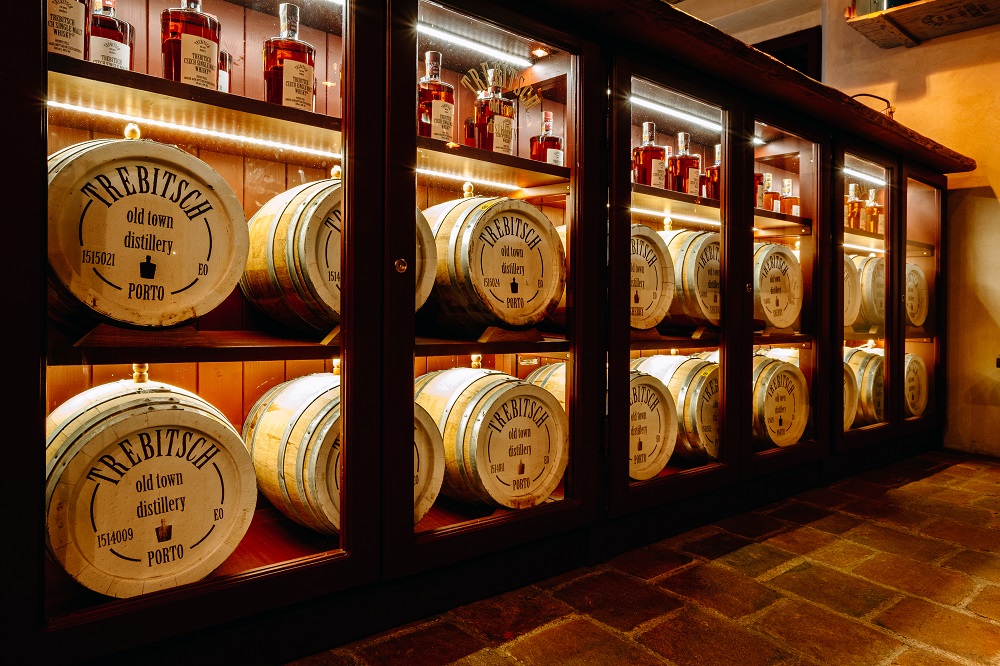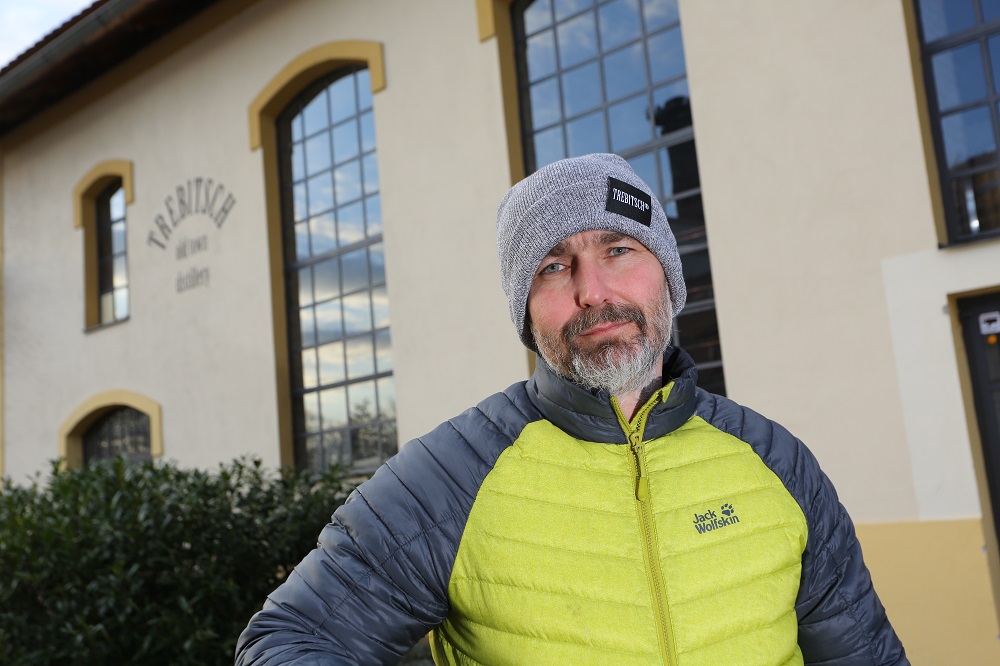
With the arrival of master distiller Ján Balog at Trebitsch Whisky, no stone, or should we say bottle, has remained unturned. The seasoned technologist has set out to make some dramatic changes, and it might even be said that Trebitsch Whisky as we have known it thus far is now a thing of the past. He’s introducing blended whiskies and preparing his own single malt, and he’s eager to speak openly about the production process.
You’ve taken me aback that it’s already been six months. If I had to choose a single word to sum it up, it would be ‘dynamic’. So much has happened, but the support from the entire team and the desire to do things differently, better, and professionally has been immense. Sure, there’s a lot of hard work involved, but you have to realize that we’re basically starting from the ground up. On the other hand, what we’ve accomplished in those six months is real, and I trust that if everyone keeps that enthusiasm going, or even takes it up a notch or two, we’re going to get more done in one year than in all the previous years combined.

I have a degree in technology. I’ve worked for the distillery in Kralupy, for Rudolf Jelínek, and also for Heineken in Egypt. I’ve served as an external consultant to technology startups in the USA, Chile, Serbia, Bulgaria, Poland, and other countries. I’ve spent practically my entire professional life in the distilling industry, and to this day the work is still unbelievably enjoyable for me. When the opportunity came to create everything at Trebitsch on my own, I didn’t hesitate.
It sure does.
It’s going to be divided into two parts – blended whiskies and single malt whisky. The vast majority of our portfolio will comprise blended whisky, with the products based on two blends, one of which we’ve tentatively named Old Town Blend and the other Czech Highland Blend. Others will be known by the finish they acquire from different types of casks, and there will also be a smoky single malt whisky. At the same time, I want to focus on limited editions, but I’m not in a hurry with that. The important thing now it to get a good foundation established that customers are happy with.
Because I’ve been given the trust of the owners, and from the very beginning I want to have full control over the production of the single malt. And, essentially, because I feel the existing inventory of whisky is suitable for blending. I’d like to take the flavour of single malt Trebitsch Whisky to another level, and the only way I can do that is with a complete transformation of the production process. That’s why I want to personally oversee the selection of the barley, the malting, the distillation, and the casking.
I’d like to do it as soon as possible. Currently, we’re working very hard to find bottles, labels, and other necessary materials. Naturally, there are lots of factors involved that we have no control over, so we’re left waiting. I don’t like making predictions; moreover, in the past certain plans and visions at Trebitsch Whisky have come back like boomerangs. And I don’t want that.
I don’t think there could be anything worse for a company than airing your dirty laundry in public. I’ve worked in the distilling industry for more than 20 years. I have experience both from home and abroad, and if I didn’t believe in the future of Trebitsch Whisky, I wouldn’t be here.
I can and I will. At present, we’ve begun distilling whisky in Prague in Počernice. This is a location where in addition to our own distilling operations we’re planning to open a customs warehouse in the very near future. We’d like it be now, but we have some administrative matters to resolve, which will involve a few minor modifications to the premises. I trust it’s only a question of a few short months. We’re also distilling at Aroma Gold in Bohuslavice. Finally, we’ll be producing a larger batch at the Sudlička distillery, and so long as everything goes precisely to plan there, we’d like to distil larger volumes there in the future.
Again, in order to get the volumes we need, we cook the mash in several different locations, such as Čížov, the Moravia beer brewery, and the beer brewery in Telč, and we’d like to also begin cooking mash in Počernice and Karlín as soon as possible. Back in 2020, we did a one-time limited cooperation with the Proud beer brewery, and we’re currently getting ready to do another.
I’ll be happy to answer that for you once the entire process is stabilized and we have production going full steam at all the sites I’ve mentioned. I’ve set a realistic goal for this year, and I trust we’re going to be able to meet it. I’d like to give numbers that aren’t based on estimates but on facts. And we have to wait for that.
At the moment we do have enough casks, but it’s a different story with the 0.7 l bottles. We’re going to need a lot of them for the new blended whiskies, but it’s quite a problem to find them. At least in the European market, that is. For a long time now, we’ve been sourcing casks in Slovakia from the Tokai region. The quality is very good, and we’ve come to rely on them. For finishing, we use casks from the Cognac region as well as casks from the production of Porto and Nicaraguan rum. We’re currently in talks with several cooperages here at home and also abroad, and I hope that we not only reach an agreement but that they’ll be able to supply us at regular intervals.
You should probably ask the customers about that, but my experience thus far is based on tastings of our Proud limited edition that we organized at three different locations around the country. I was surprised that we had a total of 200 people participate, and the reactions were fantastic. But when it comes any sort of statement like that, I really want to keep my feet on the ground. First, we have to put the work in. Only then can people judge me and the company. We’re entering the era of Trebitsch 2.0.